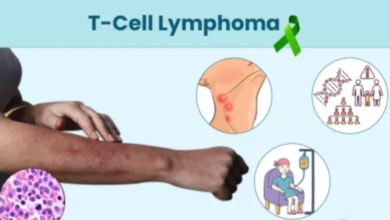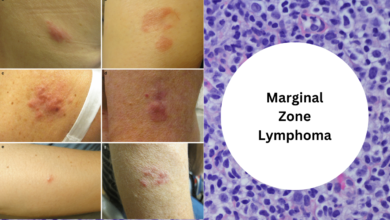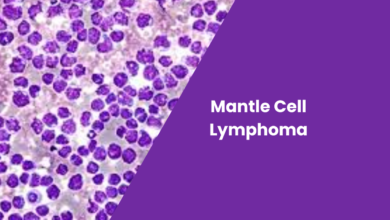
What is Hodgkin Lymphoma?
Hodgkin lymphoma is a type of cancer that develops in the lymphatic system, a network of vessels and glands that help fight infection. It’s characterized by the presence of a specific type of abnormal cell called a Reed-Sternberg cell.
Types of Hodgkin Lymphoma
There are several types of Hodgkin lymphoma, classified based on the specific characteristics of the cancer cells:
• Nodular sclerosis classical Hodgkin lymphoma: The most common type, characterized by the presence of nodules in the lymph nodes.
• Mixed cellularity classical Hodgkin lymphoma: A type with a mixed population of cells, including Reed-Sternberg cells.
• Lymphocyte-rich classical Hodgkin lymphoma: A less common type with a high proportion of lymphocytes.
• Lymphocyte-depleted classical Hodgkin lymphoma: A rare and aggressive type with few lymphocytes.
Symptoms of Hodgkin Lymphoma
Symptoms of Hodgkin lymphoma can vary depending on the location of the cancer and its stage. Common symptoms include:
• Swollen lymph nodes, often in the neck, armpits, or groin
• Fatigue
• Fever
• Night sweats
• Unexplained weight loss
• Persistent cough
• Shortness of breath
• Chest pain
• Abdominal pain
Causes of Hodgkin Lymphoma
The exact cause of Hodgkin lymphoma is unknown. However, certain factors may increase the risk, such as:
• Infection with Epstein-Barr virus (EBV): EBV is a common virus that can cause infectious mononucleosis.
• Genetic factors: Certain genetic factors may increase susceptibility to Hodgkin lymphoma.
• Weakened immune system: Conditions like HIV/AIDS can weaken the immune system and increase the risk.
Who Can Suffer from Hodgkin Lymphoma?
Hodgkin lymphoma can affect people of all ages, but it’s more common in young adults and older adults.
Diagnostic Tests for Hodgkin Lymphoma
To diagnose Hodgkin lymphoma, a doctor may use a combination of tests, including:
• Physical exam: To check for swollen lymph nodes and other abnormalities.
• Blood tests: To check for abnormalities in the blood cells.
• Biopsy: A tissue sample is removed from a swollen lymph node or other affected tissue and examined under a microscope.
• Imaging tests: CT scans, MRIs, and PET scans can help determine the extent of the cancer.
Stages of Hodgkin Lymphoma
Hodgkin lymphoma is staged to determine the extent of the disease and guide treatment. The Ann Arbor staging system is commonly used to stage Hodgkin lymphoma.
Treatment of Hodgkin Lymphoma
The treatment for Hodgkin lymphoma depends on the stage and type of the cancer. Common treatment options include:
• Chemotherapy: To kill cancer cells throughout the body.
• Radiation therapy: To kill cancer cells in specific areas.
• Immunotherapy: To boost the body’s immune system to fight cancer cells.
• Stem cell transplantation: To replace damaged bone marrow with healthy stem cells.
Diet and Hodgkin Lymphoma Prevention
While a healthy diet can support overall health and strengthen the immune system, it cannot directly prevent Hodgkin lymphoma. However, maintaining a balanced diet can help the body fight infection and maintain overall well-being.
Here are some general dietary recommendations:
• A balanced diet: A diet rich in fruits, vegetables, and whole grains can help.
• Limit processed foods and sugary drinks: These can contribute to weight gain and other health problems.
• Maintain a healthy weight: Obesity is linked to an increased risk of certain cancers.
Overall Survival Rate of Hodgkin Lymphoma
The overall survival rate for Hodgkin lymphoma has significantly improved over the years, especially for early-stage disease. With advancements in treatment, many people with Hodgkin lymphoma can achieve long-term remission or even a cure.
Doctor to Consult
A hematologist-oncologist is the best doctor to consult for Hodgkin lymphoma.
Diseases Associated with Hodgkin Lymphoma
While Hodgkin lymphoma is not directly associated with other specific cancers, it’s often linked to viral infections, particularly Epstein-Barr virus (EBV).
How to Prevent Hodgkin Lymphoma
While there’s no guaranteed way to prevent Hodgkin lymphoma, maintaining a healthy lifestyle can reduce the risk of certain factors that may contribute to the disease:
• Limit exposure to radiation and certain chemicals: Exposure to these substances can increase the risk of certain types of cancer.
• Maintain a healthy weight: Obesity is linked to an increased risk of certain cancers.
• Regular check-ups: Regular check-ups can help detect any abnormalities early on.
• Healthy lifestyle: A healthy lifestyle, including a balanced diet and regular exercise, can help boost the immune system.





